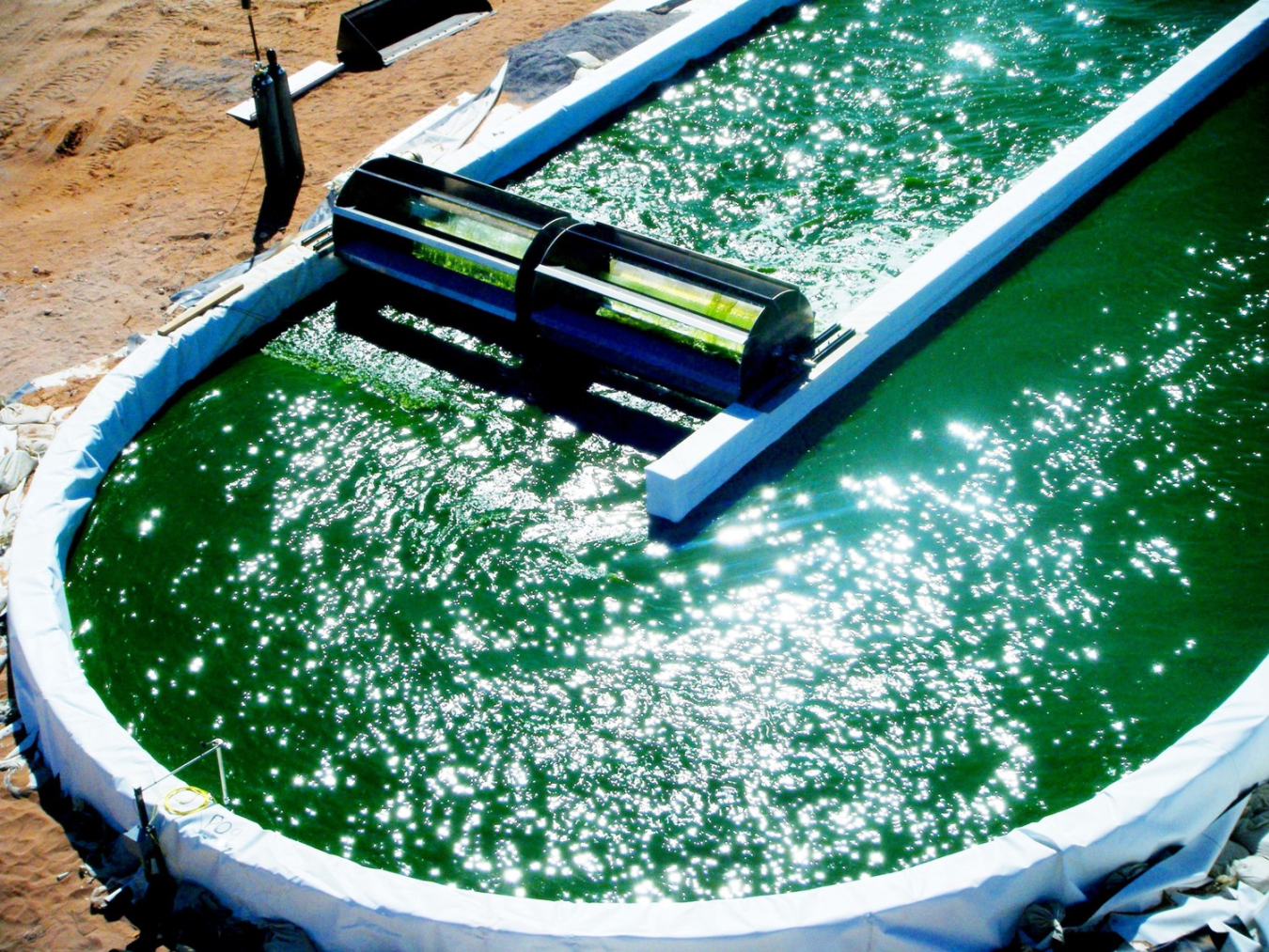The 2016 National Algal Biofuels Technology Review, which was just released today, captures the exciting achievements of the field of algal biofuels, as well as articulates new challenges, lessons learned, and critical next steps.
Office of Critical Minerals and Energy Innovation
June 27, 2016
The just-released 2016 National Algal Biofuels Technology Review captures the exciting achievements of the field of algal biofuels, as well as articulates new challenges, lessons learned, and critical next steps. | Photo courtesy of Sapphire, Las Cruces
Since the publication of the Energy Department’s pivotal 2010 National Algal Biofuels Technology Roadmap, there have been major advancements in the field of algal biofuels research and development. Today, we are announcing the publication of the 2016 National Algal Biofuels Technology Review, which captures these exciting achievements, as well as articulates new challenges, lessons learned, and critical next steps.
The Advanced Algal Systems team at the Energy Department’s Bioenergy Technologies Office (BETO) hosted multiple public workshops, worked closely with research partners, and received insightful review and comment from more than 76 independent subject matter experts to ensure that the content of this report is comprehensive, cutting-edge, and an accurate snap-shot of the state of the emerging algal biofuels industry.
The 2016 National Algal Biofuels Technology Review covers the following subject areas:
- Algal Biomass, Genetics, and Development
- Algal Cultivation
- Resources for Algal Research
- Harvesting and Downstream Processing
- Extraction of Products from Algae
- Algal Biofuel Conversion Technologies
- Systems and Techno-Economic Analyses
- Commercial Products
- Resources and Sustainability
- Distribution and Utilization
At the time of the development of the 2010 National Algal Biofuels Technology Roadmap, the Energy Department had just revived its investment in algal biofuels, first initiated in the Aquatic Species Program, which closed in 1996 largely due to algae’s inability to compete with the low gas prices in the United States at that time. In response to an increased urgency of lowering greenhouse gas emissions and producing affordable, reliable energy – as well as the recognition that we likely will not achieve these goals with just one biofuels technology pathway – BETO established an algal-biofuels dedicated portfolio of research, development, and demonstration projects with fiscal year 2009 appropriated dollars and American Recovery and Reinvestment Act (ARRA) funding. This new portfolio included three algal biorefineries, and the launching of the algae consortia effort, including the National Alliance for Advanced Biofuels and Bioproducts (NAABB) and the Consortium for Algal Biofuel Commercialization (CAB-Comm). Now that the ARRA projects are in close-out and the consortia have delivered their final reports, BETO has summarized the major scientific learnings, lessons, and insight for the future from these activities, the successes of the more recent portfolio as a whole, and key work from outside research and development groups into the update to the 2010 report.
Significant updates to the report can be found in the Algal Biomass, Genetics, and Development chapter, focused on algal biology. Over the past six years, we have come a long way in our understanding of molecular toolboxes, genetic engineering and breeding, and in translating achievement in the laboratory to outdoor cultivation environments. Researchers are beginning to develop CRISPR genome editing technologies in algae, which is a major achievement in the field. In light of these new learnings, the Advanced Algal Systems Program recently hosted a gathering of experts in the algal biology field to delve deeper and to discuss the next challenges on the horizon to tackle. The Algal Biology Toolbox Workshop was held May 24-25 in San Diego, and the output from this exchange will help to inform BETO research and development strategies moving into the next decade to continue to reduce the costs and risks of algal biomass production.
While BETO is still working to bring down the costs of algae-based biofuels, we are also investigating strategies to improve the value-added properties of algae. For example, algae production can support ecosystem services such as remediation of polluted waterways, replace petroleum-derived products and chemicals, and capture carbon dioxide emissions from coal-fired power plants.
Our hope is that 2016 National Algal Biofuels Technology Review will inform the public about how far algae-based biofuel research and development has come, and inspire a new generation of students and educators to pursue the challenges ahead. This document will also serve as a key reference for the Bioenergy Technologies Office in the strategic planning efforts relating to Advanced Algal Systems research and development.
More by this author
-
 Program Manager, Feedstock Supply and Logistics and Advanced Algal Systems, Bioenergy Technologies Office
Program Manager, Feedstock Supply and Logistics and Advanced Algal Systems, Bioenergy Technologies Office

